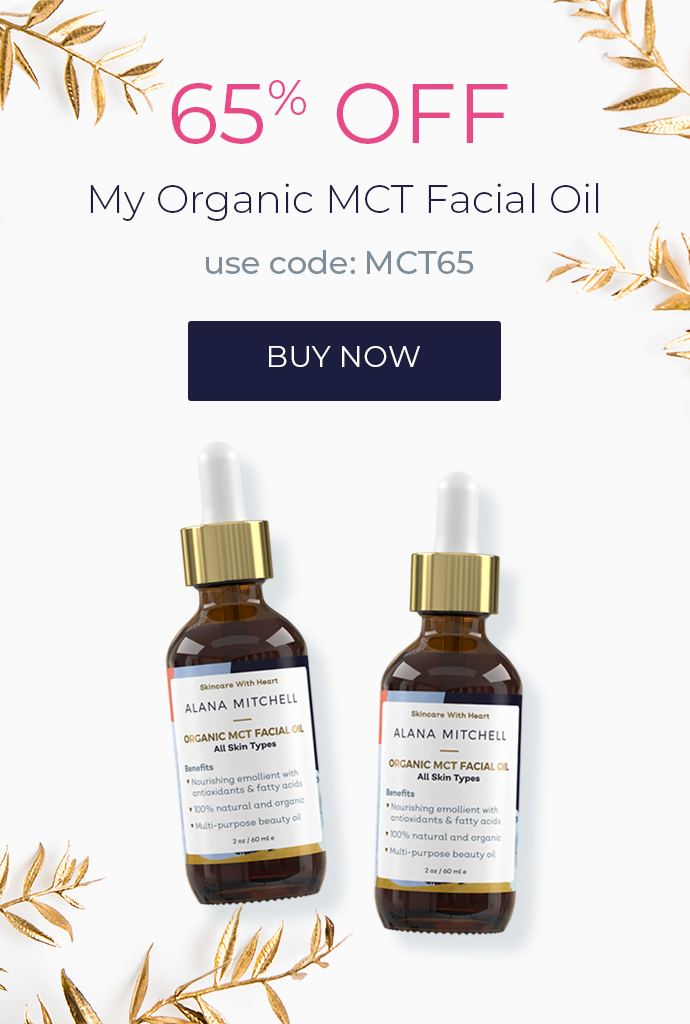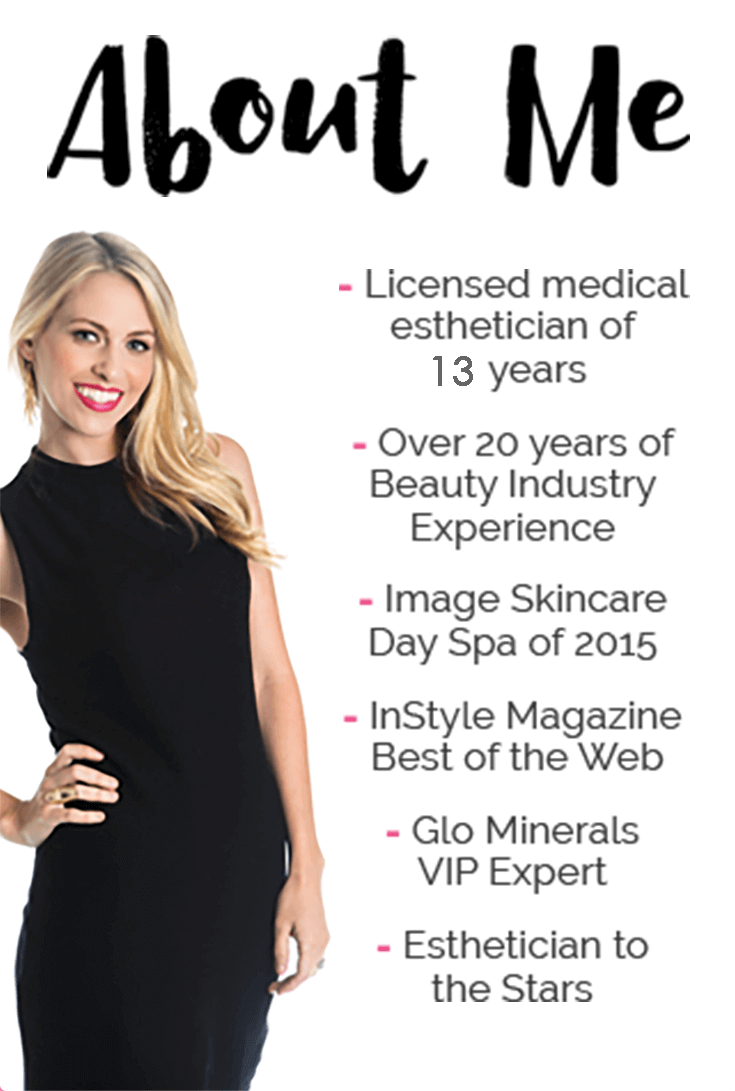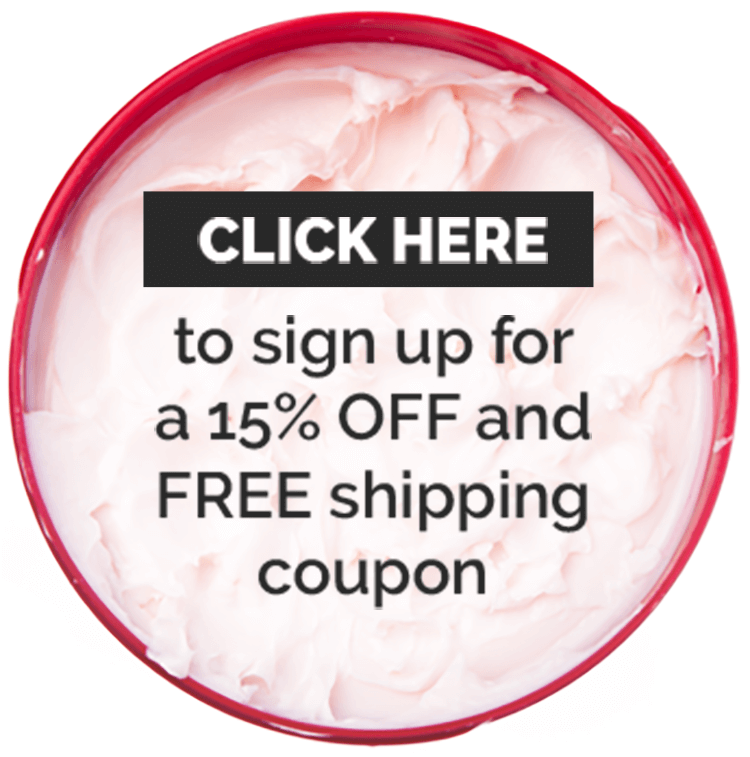What Should You Be Using In Your Skin Care Routine?
Take my quiz and get personalized recommendations from a
licensed esthetician!
All About Facial Oils and What to Expect
I love face oils!
They're nourishing, luxurious, and often smell so good, which is why I've decided to dedicate an informative guide to discussing some of my favorite oils.
Grapeseed oil, argan oil, rosehip oil, and tea tree oil are what I'm going to be focusing on, so let's get started.
Why You Should Check Out Grapeseed Oil For Yourself
Grapeseed oil is the skincare superhero that not many people have heard of.
You might be using it in some of your products already, and not even know it!
It's definitely a great multitasker.
Take a Stand Against Acne - this nourishing oil contains antioxidants and acts as an anti-inflammatory and astringent, all of which are fantastic in the fight against acne. Have you read the ingredients on your favorite anti-acne products? It's very likely that grapeseed oil is one of them! If you struggle with oily skin in addition to acne, this oil might be especially useful for you.
Defy the Tests of Time - if you read my blog, it's likely you already know that antioxidants are also wonderful for preventing and alleviating fine lines and wrinkles. Using grapeseed oil daily delivers a dose of antioxidants and nutrients that will help to improve the elasticity of your skin, which is fantastic for anti-aging.
Moisturize Your Skin - grapeseed oil is ideal for individuals who want moisture that feels light. This oil is easily absorbed by the skin, meaning it will not leave a film or feel heavy (when used in the appropriate amounts, of course).
Treat Sensitive Skin - indeed, this fabulous oil is gentle enough for sensitive skin types, so if you struggle with oily or acneic skin that typically doesn't respond well to popular acne treatments, this is a definite must-try!
Some Friendly Tips - this oil can be used all over the face, so no need to be shy and spot treat! I love using 2-3 drops all over my face, then using yet another drop around my eyes (amazing for nourishing my dry eye area and preventing fine lines). I prefer using this product in the PM and have added a couple of drops to my tinted moisturizer on days when my skin leaned more on the dry side.
What I Love - if using straight-up grapeseed oil isn't for you, there are tons of fabulous products out there that utilize this wonderful ingredient. I absolutely love Epicuren's Papaya Pineapple Grape Seed Scrub for sloughing away dead skin and livening up my complexion, Rhonda Allison's Grape Seed Hydrating Serum for nourishing my skin (both AM and PM), and iLike Firming Grapeseed Body Oil for nourishing and toning the skin on my body!
I want to know, what are you favorite grapeseed oil products? Do you use it pure or in conjunction with other products?
Argan Oil: Worth the Hype
Argan oil, which quickly has become one of the most talked about oils in the industry, is an extraordinary oil.
It's aptly nicknamed "liquid gold" for its number of uses and benefits, which has contributed to its wicked popularity amongst the masses.
So, what can argan oil do for you?
Prevent Premature Aging - aging is a natural, and beautiful thing, but that doesn't prevent most of us from seeking out products that can help slow down the process. A huge component of slowing down the aging process (and prevent premature signs of aging) is ensuring that your skin gets the nourishment it needs. Argan oil is rich in fatty acids, which are fantastic for erasing and preventing signs of aging. With regular use, you can expect to see a reduction in fine lines and wrinkles and better skin elasticity. This oil has also been said to help fade age spots - something that I have not personally tested.
Environmental Protection - argan oil is rich in antioxidants, which are amazing at defending against environmental damage. It is said to be beneficial for healing UV damaged skin, but that doesn't mean you should be going without SPF (wear your sunscreen always). Using a product that will provide a barrier between free radicals and your skin is a must, and argan oil is a fantastic, natural way to achieve that barrier.
Heal Your Skin - argan oil also happens to be rich in flavonoids, which act as an anti-inflammatory on the skin. What exactly does this mean? You can rub it onto skin for a mildly soothing experience! This is not to be confused with more targeted soothing treatments (like aloe vera), but rather it does a good job at lightly soothing irritation while delivering essential hydration.
Smooth Hair - I actually first started using argan oil to enhance my hair and prevent split ends! Argan oil is fantastic at delivering moisture, and sealing it in to prevent breakage, flyaways, and so much more. If you want healthier, shinier, softer hair, I couldn't recommend argan oil enough.
Healthy Nails - I'm no stranger to nail breakage and dryness, which is why I always have some argan oil in my cabinet. Rich in Vitamin E, this oil delivers critical moisture to my cuticles and nails, while acting as an anti-bacterial and anti-inflammatory. I personally love using argan oil all over my hands for a dose of serious hydration.
What I Love - There are so many fabulous argan oils out there, but I have been personally loving 100% Pure's Organic Argan Oil for my face, neck, and hands, and Agadir's Argan Oil Hair Treatment (which smells amazing) for my hair.
I want to know: what are your favorite ways to use argan oil, and why?
The Many Benefits of Rosehip Oil
This is definitely one of my favorite skincare oils, and for good reason.
If you need anti-aging in your skincare regimen, look no further.
Your skill will look perfectly rosy.
Nourish & Rejuvenate Your Skin - rosehip oil is rich in vitamin A, which encourages cellular turnover and subsequently acts as an anti-aging ingredient. Vitamin A is also known to help protect the skin from UV damage and boost the skin's immune system.
Handle Hyperpigmentation - as if vitamin A wasn't enough, rosehip oil delivers on the vitamin C forefront, which is notorious for its ability to fight dark spots on the skin. In these instances, you can either use the rosehip oil as a spot treatment or as an all-over treatment, depending on your preference.
Deep Hydration - this nourishing oil is very hydrating, making it perfect for dry skin users, or those with mature skin. Applying products that moisturize deeply can help to reduce the appearance of fine lines and wrinkles on aging skin. An extra added bonus: rosehip oil isn't super heavy, so it should not feel greasy when applied in the proper amounts.
Eczema Relief - if you deal with eczema or tough dry patches, you might want to look in the direction of rosehip oil. It's known to be calming, on top of moisturizing, meaning it can help soothe and nourish extremely dry skin. Of course, you want to talk to your medical esthetician or dermatologist before applying any product on irritated skin!
Tame Your Tresses - when people think of oil for their hair, argan oil is usually the first thing that comes to mind. And while I absolutely love and endorse using argan oil as a hair treatment, rosehip oil is a great contender for those who want silkier, frizz-free locks. This nourishing oil will help infuse the hair shaft with moisture while promoting smoothness and shine. What's not to love?!
Nourish Your Nails - if your nails or cuticles are feeling dry or brittle, rosehip oil can definitely come in handy. Simply use a dab on your index finger and spread it out to each nail on your hand. You will notice benefits immediately, with even more beautiful results over time.
What I Love - What I love about rosehip oil is that you can find it in so many different types of products. If you want the full-on oil experience, you can't go wrong with Trilogy's Certified Organic Rosehip Oil. If you'd like to find products that feature rosehip oil alongside other beneficial ingredients, there are plenty! I absolutely love Eminence Organic's Rosehip Exfoliating Masque and iLike's Rosehip Whipped Moisturizer for a duo that helps to renew and replenish my skin.
Looking for Strength? Try Tea Tree Oil
Since so many people start to see an emergence of acne during the warmer summer months, I thought it would be appropriate to discuss tea tree oil, which is notorious for its anti-acne properties.
Indeed, tea tree oil has long been utilized and loved in the skin care industry; but how many of you know more about this oil than its simple pimple-fighting abilities?
Today, I want to share what I know with you!
Say Goodbye to Acne - There are two very specific reasons why tea tree oil works so wonderfully when it comes to obliterating and preventing pimples. First, this (very fragrant) oil has anti-bacterial properties, meaning it will help to disinfect your skin. This is great for getting rid of existing acne and preventing the possibility of future breakouts. Secondly, this oil comes equipped with soothing properties. However, it can cause irritation amongst more sensitive skin types, so be sure to discuss your prospective tea tree oil product of choice with your medical esthetician or dermatologist.
Prevent Skin Infections - Because of its anti-bacterial properties, tea tree oil makes a great defense against skin infections. You can use this oil on scratches, insect bites, rashes, irritated blemishes, and more if you know your skin reacts well to it. I've used DermaE's Tea Tree and E Oil on scratches and rashes by diluting the product in organic coconut oil, which also has anti-bacterial properties! Please note that this product does have a very strong tea tree oil smell.
Fight Itchy Dandruff - There are a number of natural shampoos and conditioners on the market that offer tea tree oil as an ingredient, and if you deal with an itchy, dry scalp, or dandruff, you may want to take them into consideration! Tea tree oil has certain moisturizing properties that can help combat dry, itchy skin, and it's anti-bacterial properties make it a great aid in fighting dandruff.
As a Cleaning Solution - I have not personally tried this (yet), but I have heard wonderful things about using tea tree oil as a household cleaning agent. Recipes for cleaning sprays will vary, but the simplest one I have been able to find involved using 1 tsp of pure tea tree oil in a spray bottle, and filling the rest with water. Be sure to shake the solution before using to disrupt any separation that may occur.
Some Friendly Tips - First and foremost, I don't recommend using tea tree oil (or any essential oil) directly on your skin as the potency can cause irritation. I've preferred using products from trusted brands that come with tea tree oil as a featured ingredient (such as Glymed Plus Serious Action Skin Gel with Tea Tree Oil and the DermaE product listed above). Second, always do a patch test before diving in and using any new product, including tea tree oil products. A patch test involves placing a small amount of the product on a small patch of skin - like the back of your wrist - and waiting 24 hours to see if any irritation occurs.
Has tea tree oil helped your breakouts or other skin conditions? How often do you use it?
Final Thoughts
As you can see, oils can easily be incorporated your skincare (and haircare) routine.
Go through the list and see which would work best for your concerns.
You're always welcome to leave questions for me in the comments!
Top Brands
New Brands

Recent Posts

Are You Taking the Right Steps to Care for Your Skin?
Take the Quiz
Skincare Secrets!
10-step guide for healthy, beautiful skin after kids.
100% privacy. I will never spam you!

















